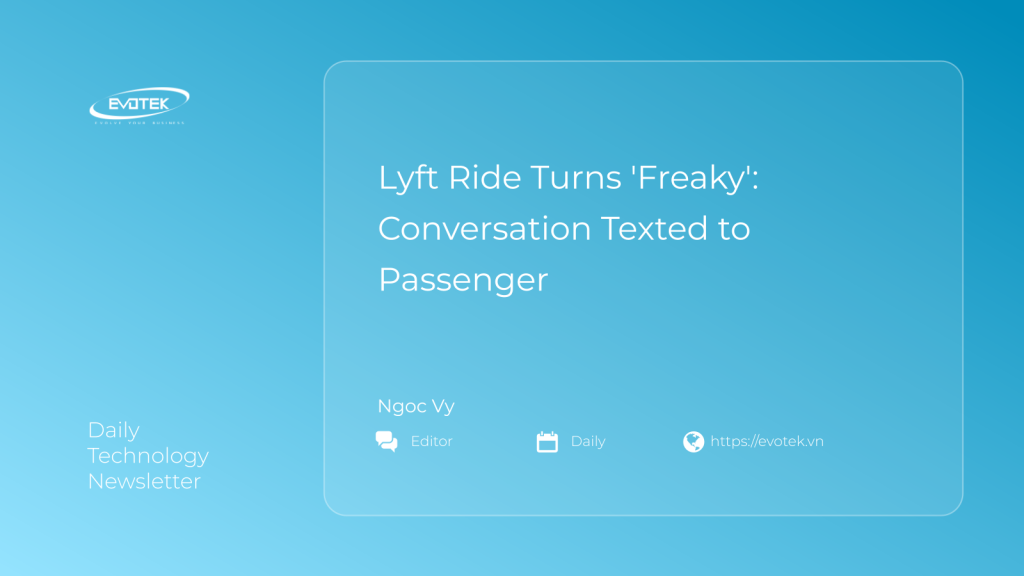A Toronto woman experienced a jarring privacy breach after a recent Lyft ride. Anvi Ahuja received a text message containing a transcript of her conversation with friends during the trip.
Ahuja described the incident as “freaky,” noting the driver never informed them they were being recorded. The text arrived shortly after she returned to her apartment, leaving her unsettled and searching for answers.
Lyft Investigates Strange Text Message Incident
Initially, a Lyft representative suggested the incident was part of a pilot program. However, the company later stated the driver recorded Ahuja without consent, and “proper actions” were taken. Lyft has offered varying explanations for the event.
In a statement, Lyft confirmed the incident but clarified it wasn’t related to their audio recording pilot in select U.S. markets, which has “strict opt-in protocols.” The company emphasized that safety is fundamental and violations of their terms of service are taken seriously.
Privacy Concerns Raised After Ride-Sharing Incident
The incident raises concerns about privacy in ride-sharing services. Ahuja highlights that passengers often have sensitive conversations in cabs, assuming a level of security. This event challenges that assumption.
Former Ontario privacy commissioner Ann Cavoukian called the incident “completely unacceptable,” stating it breaches Canada’s federal privacy law. She emphasized that passengers expect conversations within a ride-sharing vehicle to remain private.
Lyft’s privacy policy prohibits recording another person without express prior consent. The company believes the recording “most likely occurred due to accidental phone activity between the driver’s and rider’s phones via masked numbers.” This could have been an accidental pocket dial that went to voicemail, or an accidental recording sent via voice-to-text.
- Privacy Law: Canada’s PIPEDA requires informed consent before collecting, using, or sharing personal information.
- Informed Consent: Passengers must be notified if they’re being recorded, including the specific purpose, data usage, retention, and destruction methods.
The Canadian Civil Liberties Association emphasized the need for meaningful, informed consent from passengers before any recording takes place.
Despite Lyft’s explanation, Ahuja remains concerned about data privacy and the responsibility companies have to their customers.
Source: CBC News

 日本語
日本語 한국어
한국어 Tiếng Việt
Tiếng Việt 简体中文
简体中文